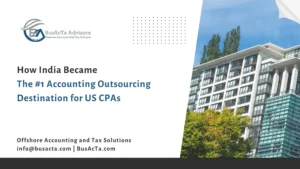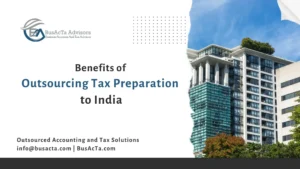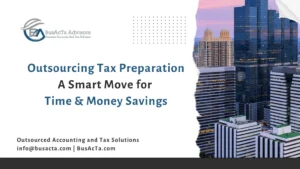Meaning: Cash & Accrual Accounting:
1. Cash Accounting
- Under cash-based accounting, revenue and expenses are recorded when cash is actually paid or received.
- It doesn’t account for when the transactions occur.
- Since, bills, invoices, and inventory are not accounted it’s difficult to know the figures of Accounts Payable and Accounts Receivables at any point.
2. Accrual Accounting
- Revenue is recognized when it is earned, regardless of cash receipt, and expenses are recognized when they are incurred, irrespective of payment.
- This method is based on the Rules of Accounts (called Generally Accepted Accounting Principles, – GAAP).
- This method requires recording bills, invoices, and inventory, so tracking of balances of accounts payable, and accounts receivable is possible.
How do Cash and Accrual Accounting work?
Accounting under Cash Basis:
Cash-based accounting is an accounting method that records and tracks financial information based on the actual flow of cash in and out of a business.
Under cash basis accounting, revenue and expenses will be recognized as follows:.
Revenue: At the time when cash is received,
Expenses: At the time when cash is paid out,
In other words, income will be recorded when payment is received (cash, check, or credit card) and expense when payment is made (by means like cash, cheque, credit card etc.).
Accounting on an Accrual Basis:
Accrual accounting records revenues and expenses when they’re earned and incurred, respectively, regardless of when the money is received or paid. This method is more complex, but it provides a more accurate picture of a company’s financial records.
Accrual accounting’s primary focus is on two types of business events.
From an Income Perspective –
- An income is recognized when a service has been performed, or a product has been delivered by a company, even if the payment has not yet been received.
- If payment is not received, accounts receivable will be created.
- If payment is received but delivery or performance of services is pending, deferred income will be created.
From an Expenses perspective –
- An expense is recorded when a service or product has been received, even if the payment has not yet been made.
- If payment is not made, accounts payable and unpaid expenses will be created.
- If payment is made but the service or product has not been received, prepaid expenses will be created.
Although accrual accounting provides consistent measurement and treatment of a business’s economic events, it does not readily communicate a business’s cash flow.
Impact on financial statement using an example:
Example: Suppose a software company provides a service to a client in December but expects payment in January.
| Recognition | Cash-Basis Accounting | Accrual-Basis Accounting |
| Recognition Timing | Revenue and expenses are recordedonly when cash is received or paid out | Accrual accounting records revenue and expenseswhen transactions occur, regardless of when cash is received or paid. |
| Income Statement | In this case, revenue or expenses will be recognized inJanuary when cash is received or paid. So, it will reflect actual cash inflows and outflows. | Revenue and expenses will be matched and recognized in the period they relate to, i.e.,December, which provides a more accurate picture of profitability. |
| Balance Sheet | No entries will be made for accounts receivable and payable. Unpaid invoices and outstanding bills are not considered. | Accounts receivable (unpaid invoices) and accounts payable (unpaid bills) will be recognized in December, reflecting the company’s overall financial health. |
What are the Advantages and Disadvantages of Cash and Accrual Accounting?
Cash Accounting:
Benefits:
Simplicity:
- Cash-based accounting is straightforward to use, understand, and implement, especially for small businesses with limited accounting resources.
Reduced administrative burden:
- No need to track outstanding receivables and payables, which makes streamlined bookkeeping processes.
Disadvantages:
Limited financial visibility:
- Fails to capture the complete picture of the company’s financial health by not considering outstanding debts and future income.
Potential for misrepresentation:
- Seasonal fluctuations in income and expenses can be amplified, leading to misleading financial statements.
Not GAAP Compliant:
- It’s not compliant with Generally Accepted Accounting Principles (GAAP), making it unsuitable for companies that rely on external funding.
Accrual Accounting:
Advantages:
Financial Health:
- Accrual Accounting provides a more accurate picture of your company’s financial health.
GAAP Compliant:
- Accrual Accounting is compliant with GAAP, making it suitable for larger businesses and for those who are occasionally in need of external funding.
Disadvantages:
Complexity:
- Accrual accounting can be more complex due to items like unearned revenue and prepaid expenses. It’s commonly used by large companies and required for audited financial statements. Also, It’s complex to implement and maintain, which makes it unsuitable for small businesses with limited skilled resources.
Cash Flow:
- It might not accurately reflect the cash flow situation
Which method is best for you?
As per IRS Instructions, most individuals and many small businesses (including Partnerships & Corporations) that have average annual gross receipts of 25 MM or less during the preceding 3 years are allowed to use cash basis accounting; however, for others, it’s compulsory to use Accrual Accounting. However, the following are the points that can help you to choose the best accounting method for you.
Cash-Basis Accounting:
Businesses operating without inventory: Companies need to account for their inventory at the opening and closing of the tax year. Cash accounting makes this problematic as it focuses on the flow of money rather than tracking the movement of inventoried goods. However, businesses lacking inventory should be fine using the cash-basis accounting approach. Additionally, as per IRS Instructions, small businesses that fall under the $25 million cap are allowed to treat inventory as supplies and non-incidental materials. ⮞ Businesses focused on cash flow management: Cash Accounting directly reflects the inflow and outflow of cash, providing a clear picture of immediate financial liquidity. This can be particularly valuable for businesses that need to closely monitor their cash flow to ensure they have enough funds to cover day-to-day operations.
Accrual-Basis Accounting:
GAAP Compliance:
- Such businesses, which are public companies, must adhere to the GAAP, and so they are required to use accrual-basis accounting to meet the GAAP principles.
Complex Transactions:
- When a company is involved in complex transactions like Long-term Leases, Long-term Construction contracts, etc.
Also, there can be other reasons to choose accrual basis accounting, like when a company wants to track its assets and liabilities, the company is involved in external long-term finance with an international bank, the Company has a holding company in another country, and so on.
How to convert Accounts from Cash accounting to Accrual accounting and Accrual accounting to Cash accounting?
The transition from one accounting method to another could be very complex and require permission from the IRS. Also, there must be extensive work for conversion from one method to another. We have listed the process in the following steps.
From Cash-Basis Accounting to Accrual-Basis Accounting:
Step 1: Accrued Expenses:
These are expenses for which the company has received a benefit but hasn’t yet paid the supplier or employee. Examples include wages earned but unpaid, direct materials received but unpaid, and office supplies received but unpaid. Year-End Adjustments – Expense Accounts (PL) (Dr) and Accounts Payable (BS) (Cr) Transition Adjustments – Retained Earnings (Opening) (BS) (Dr) and Accounts Payable (BS) (Cr)
Step 2: Prepaid Expenses:
Some cash payments may relate to assets that have not yet been consumed, such as advance rent payments. Identify these prepaid expenses and move the unused portion into an asset account. Year-End Adjustments – Prepaid Expenses (BS) (Dr) and Expenses Accounts (PL) (Cr) Transition Adjustments – Prepaid Expenses (BS) (Dr) and Retained Earnings (Opening) (BS) (Cr)
Step 3: Accounts Receivable:
Record accounts receivable and sales for all billings issued to customers for which no cash has yet been received. If any sales originating in a prior period were recorded within the current accounting period based on the receipt of cash, reverse the sale transaction and record it as a sale and accounts receivable in the preceding period. Year-End Adjustments – Accounts Receivables (BS) (Dr) and Sales Accounts (PL) (Cr) Transition Adjustments – Accounts Receivables (BS) (Dr) and Retained Earnings (Opening) (BS) (Cr),
Step 4: Deferred/ Advance Income:
Some customers may have paid in advance for their orders (recorded as sales under cash-based accounting). Treat these as liabilities or deferred income until the company ships the related goods or provides the indicated services. Year End Adjustments – Sales Accounts (PL) (Dr) and Deferred Income (BL) (Cr) Transition Adjustments – Retained Earnings (Opening) (BS) (Dr) and Deferred Income (BL) (Cr)
From Accrual-Basis Accounting to Cash-Basis Accounting:
Step 1:Accrued Expenses:
Identify any expenses that have been accrued but not yet paid (e.g., unpaid bills, wages earned but unpaid, materials received but unpaid). Remove these accrued expenses from the financial statements. The accrued liabilities account in the balance sheet is a good source for this information. Year End Adjustments – Accounts Payable (BS) (Dr) and Expense Accounts (PL) (Cr) TransitionAdjustments – Accounts Payable (BS) (Dr) and Retained Earnings (Opening) (BS) (Cr)
Step 2: Prepaid Expenses:
Prepaid expenses will be treated as a Deduction for the period in which payment is made. If the company paid in advance for certain expenditures (recorded as prepaid expenses on an accrual basis), shift these transactions to expenses in the period when cash was paid. From Accrual Basis Accounting, we need to remove prepaid expenses and make adjustments to increase expenses or reduce retained earnings. Year-End Adjustments – Expenses Accounts (PL) (Dr) and Prepaid Expenses (BS) (Cr) Transition Adjustments – Retained Earnings (Opening) (BS) (Dr) and Prepaid Expenses (BS) (Cr)
Step 3:Accounts Receivable:
Under the accrual basis, some sales may have been made at the end of the preceding period. If the related customer payment was not received until the following period, shift these sales forward into the accounting period when cash was received. Accounts receivable represent sales made on credit, so only include them when cash is received. Year-End Adjustments – Sales Accounts (PL) (Dr) and Accounts Receivables (BS) (Cr) Transition Adjustments – Retained Earnings (Opening) (BS) (Dr) and Accounts Receivables (BS) (Cr)
Step 4: Deferred/ Advance Income:
If customers paid in advance for their orders (recorded as liabilities on an accrual basis), shift these transactions to sales in the period when cash was received., Year End Adjustments – Deferred Income (BL) (Dr) and Sales Accounts (PL) (Cr) Transition Adjustments – Deferred Income (BL) (Dr)and Retained Earnings (Opening) (BS) (Cr)
How will BusAcTa Advisors help with Cash and Accrual Accounting?
At BusAcTa Advisors, we understand that the choice between accrual and cash-based accounting is a critical decision for your business. We are here to guide you through this process. We can help you understand the pros and cons of each method and choose the one that best fits your business model. We offer comprehensive accounting services tailored to your specific needs. Whether you’re a small business owner looking for bookkeeping support or a seasoned accounting and tax professional looking to hire an offshore accounting partner, we are here to help you.
Our services include, but are not limited to:
- Detailed explanations of both cash and accrual accounting methods.
- Assistance in determining which method is most suitable for your business.
- Guidance on transitioning between the two methods, if necessary.
- Ongoing support and advice to ensure your financial reporting is accurate and compliant.
With BusAcTa Advisors, you can focus on what you do best – running your business – while we take care of your accounting needs. Contact us today to learn more about how we can assist you with your accrual and cash-based accounting. Let’s build a financially strong future for your business together.





